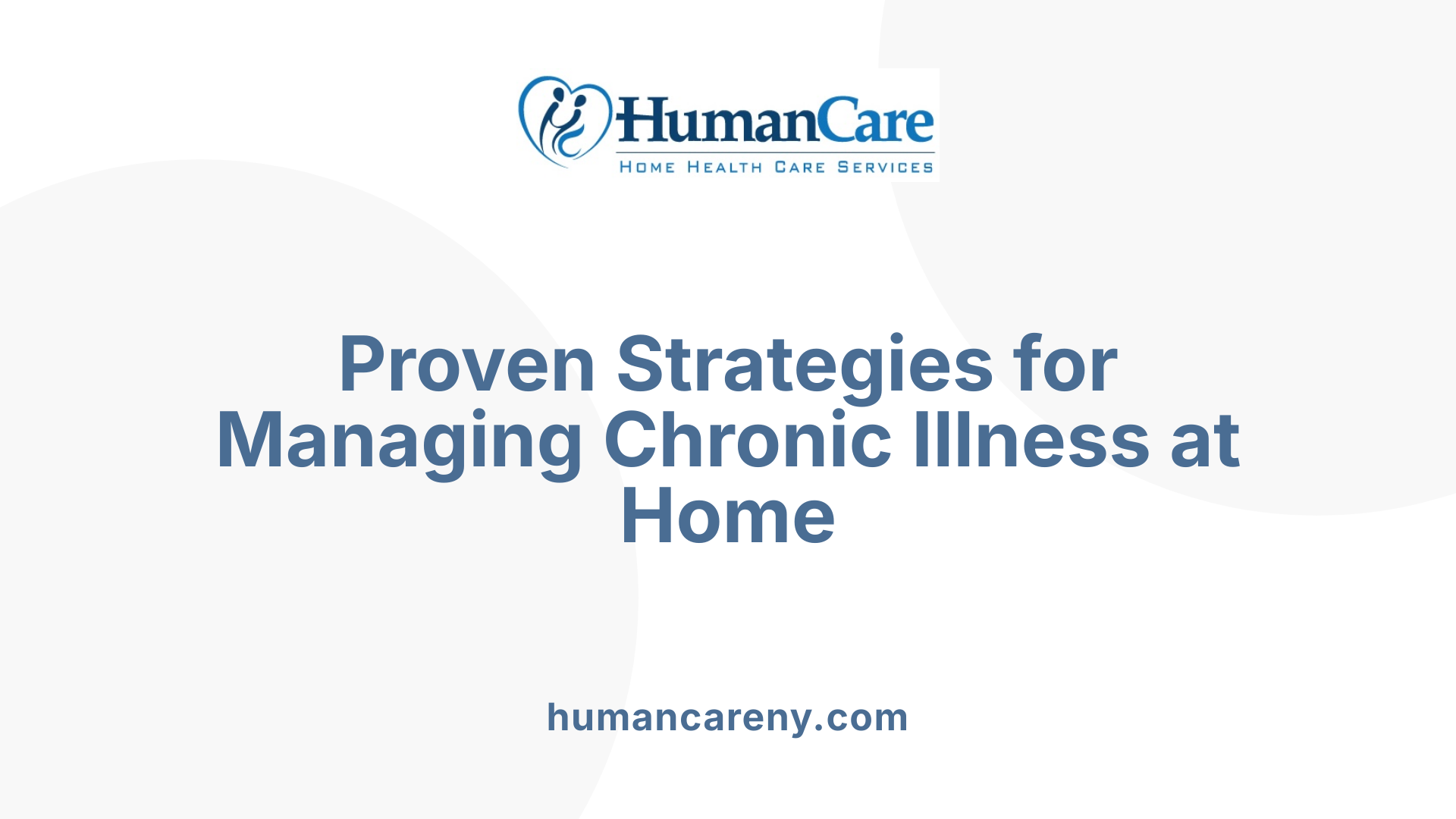Understanding the Critical Role of Homemaking and In-Home Support
As the global population ages, the importance of effective chronic illness management for elderly individuals becomes increasingly apparent. Homemaking and in-home care services serve as vital support systems that enable seniors to maintain independence, manage their health effectively, and enjoy a better quality of life within their familiar environments. This article explores how these tailored support services, delivered by qualified professionals, contribute to improved health outcomes, emotional well-being, and overall safety for elderly individuals living with chronic conditions.
Range of Home Care Services for Chronic Disease Management
 What types of home care services are available for elderly individuals with chronic health issues?
What types of home care services are available for elderly individuals with chronic health issues?
Elderly individuals facing chronic health challenges benefit from a comprehensive array of home care services designed to support their health and independence. These services range from medical support to daily personal assistance, ensuring that each individual's unique needs are met.
Medical support is a core component, including skilled nursing care provided by licensed nurses. These professionals can administer medications, perform wound care, monitor vital signs, and manage complex conditions such as heart failure, diabetes, and COPD. Regular doctor visits and various therapies, like physical, occupational, and speech therapy, help improve functional ability and manage symptoms.
Beyond medical interventions, non-medical services include assistance with everyday activities such as bathing, dressing, grooming, and meal preparation. Help with housekeeping, transportation to medical appointments, and companionship services also play a vital role in maintaining emotional well-being.
Specialized care options are available for specific needs, such as dementia care, post-surgical recovery, hospice, and palliative services. These programs are tailored to address complex health issues, often involving specialized professionals trained in managing the intricacies of chronic illness.
Together, these services create a supportive environment that enables seniors to manage their health effectively while living comfortably at home. The broad spectrum of available care ensures that elderly individuals receive personalized, continuous support that adapts as their health evolves.
| Service Type | Description | Additional Support |
|---|---|---|
| Skilled Nursing | Administer medications, wound care | Managed by licensed nurses |
| Doctor Visits & Therapies | Routine checkups, physical/occupational therapy | Improve mobility, manage symptoms |
| Medication Management | Organized schedules, reminders | Ensures medication adherence |
| Wound & Symptom Monitoring | Track healing process | Prevent complications |
| Personal Care Assistance | Bathing, dressing, grooming | Maintains dignity and independence |
| Specialized Care Options | Dementia, hospice, post-surgery | Customized for complex needs |
This range of services demonstrates how home care can holistically support seniors with chronic diseases, promoting quality of life and health stability within their familiar environment.
Benefits of Homemaking Care for Seniors with Chronic Conditions
What are the benefits of homemaking care for seniors with chronic health conditions?
Homemaking care provides a comprehensive support system for seniors dealing with chronic illnesses, enabling them to maintain independence and safety in their own homes. These services are tailored to meet individual needs and include assistance with daily activities, health management, and emotional well-being.
One of the most significant advantages is enhanced safety and comfort. Caregivers help with personal care routines such as bathing, dressing, and grooming, which reduces the risk of falls and injuries. They also support medication management, ensuring proper adherence to prescribed treatments, which is crucial for controlling chronic conditions like diabetes and heart disease.
Support for daily activities extends to meal preparation, household chores, and mobility assistance, helping seniors sustain a nutritious diet and a clean, safe living environment. This reduces the likelihood of accidents and health complications.
Mental health and social engagement are equally important. Homemaking care often includes companionship services, encouraging social interactions that combat loneliness and depression. Engaging with caregivers and participating in community activities foster emotional resilience.
Emergency support systems, like medical alert devices and regular check-ins, provide immediate assistance during health emergencies or falls, ensuring prompt medical response and reducing complications.
By offering these extensive services, homemaking care reduces the need for hospitalizations and prevents unnecessary institutionalization. It supports aging in place, improving quality of life while easing caregiver workload.
Overall, the personalized approach of homemaking care helps seniors manage their health more effectively, maintain their independence longer, and enjoy a better quality of life within the comfort of their homes.
How In-Home Care Contributes to Better Health Outcomes
 In-home care plays a vital role in improving health outcomes for elderly individuals, particularly those managing chronic conditions. One significant benefit is the reduction in hospitalizations. For example, in patients with heart failure, in-home care reduces the risk of combined events such as all-cause mortality and hospital visits by about 12%. This lighter hospitalization burden is achieved through regular monitoring, early detection of health changes, and tailored care plans.
In-home care plays a vital role in improving health outcomes for elderly individuals, particularly those managing chronic conditions. One significant benefit is the reduction in hospitalizations. For example, in patients with heart failure, in-home care reduces the risk of combined events such as all-cause mortality and hospital visits by about 12%. This lighter hospitalization burden is achieved through regular monitoring, early detection of health changes, and tailored care plans.
In addition to reducing hospital stays, in-home care helps improve activities of daily living (ADLs). Elderly individuals receiving this support have fewer unplanned hospital visits—about one less on average—and face less difficulty in essential tasks like dressing, grooming, bathing, and feeding. This support maintains their independence and emotional well-being.
Beyond physical health, in-home care enhances overall mental and physical well-being. For heart failure patients, improvements are often noted in health-related quality of life (HRQOL), especially in physical well-being, as measured by tools like the SF-36. Such services help patients maintain their mobility and manage symptoms effectively.
Another critical aspect is the early detection of health changes. Regular caregiver monitoring facilitates timely interventions, which can prevent complications and hospital admissions. For those with diabetes, in-home care can help lower HbA1c levels through blood sugar testing and responsible insulin management.
Support for chronic disease management is also strengthened by in-home services. These include medication adherence, blood sugar control, nutritional support through meal delivery programs, and safety modifications in the home. Emailing and phone check-ins, companionship, and mental health support further promote resilience and stability.
Overall, in-home care offers a comprehensive, personalized approach that fosters safety, independence, and better health outcomes for elderly individuals with chronic illnesses. It paves the way for more comfortable, healthier aging in familiar surroundings while reducing the need for hospitalization and enhancing their quality of life.
Effective Strategies and Methods in Homemaking Care

What methods and strategies are used in homemaking care to manage chronic illnesses?
Homemaking care for individuals with chronic illnesses employs a combination of personalized strategies aimed at improving health outcomes and maintaining independence. One fundamental approach is medication adherence, where caregivers assist with organizing pills, reminding patients to take their medications, and ensuring medication lists are current. Proper medication management is crucial for controlling symptoms and preventing complications.
Regular health monitoring is another vital component. This often involves routine checks of vital signs, blood sugar levels, or other relevant health indicators, which can be supported through the use of simple tools like blood pressure cuffs or blood glucose meters. For more advanced monitoring, many caregivers utilize smart technology such as sensors and remote monitoring devices that track physiological data continuously and alert healthcare providers to potential issues.
Environmental modifications within the home also play a significant role. Modifying living spaces to reduce fall risks, improve mobility, and facilitate easier access to essential items helps individuals manage daily activities more safely and independently. This includes installing grab bars, non-slip mats, and ramps where necessary.
The integration of technology extends beyond basic devices. Remote health monitoring systems, sensors, and alert systems can provide real-time data to healthcare teams, allowing for early intervention and tailored care adjustments. These tools support proactive healthcare, reducing unnecessary hospitalizations.
Beyond physical health, emotional and social support are equally important. Caregivers often facilitate engagement in hobbies, social interactions, and communication with loved ones to combat feelings of isolation and improve mental health. Emotional support services, including counseling and companionship, help enhance overall well-being.
Overall, these evidence-based approaches in homemaking care—ranging from medication routines and health tracking to environmental adaptations and emotional support—are designed to promote self-management, reduce health crises, and improve quality of life for those living with chronic conditions.
Resources and Programs Supporting Homemaking Care
 Several community and federal programs aim to help individuals manage chronic conditions through comprehensive homemaking care. These initiatives provide a mix of medical, support, and educational services tailored to maintain health and independence at home.
Several community and federal programs aim to help individuals manage chronic conditions through comprehensive homemaking care. These initiatives provide a mix of medical, support, and educational services tailored to maintain health and independence at home.
Home health agencies licensed by state health departments deliver skilled nursing services, such as medication management, blood sugar testing, insulin administration, wound care, and physical therapy. Such services are crucial for chronic conditions like diabetes, heart failure, and arthritis.
Support services extend beyond medical care to include assistance with activities of daily living (ADLs). This includes help with bathing, dressing, grooming, toileting, and feeding, ensuring safety and emotional well-being.
Meal delivery programs, such as Meals on Wheels, offer nutritious meals that support dietary restrictions linked to chronic illnesses. Transportation services facilitate regular access to medical appointments and pharmacies, vital for ongoing disease management.
Educational programs like self-management education (SME) teach patients how to monitor symptoms, adhere to medication routines, and implement lifestyle changes. Telehealth platforms further enable remote monitoring and professional guidance, enhancing self-care.
Support for caregivers, including respite care and training, helps sustain those providing ongoing support to loved ones with chronic conditions. Resources from organizations such as the Department of Veterans Affairs and local community groups are instrumental in delivering integrated care.
| Program Type | Services Provided | Beneficiaries | Additional Details |
|---|---|---|---|
| Home health agencies | Skilled nursing, therapy, wound care | Elderly, disabled, chronic disease patients | Licensed by state health departments |
| Meal delivery | Nutritious meals | All homebound seniors | Supports dietary needs |
| Transportation | Medical appointment access | Elderly, mobility-impaired | Ensures consistent health management |
| Self-management education | Disease monitoring, lifestyle advice | Adults with chronic conditions | Promotes independence and symptom control |
| Caregiver support | Respite, training | Family caregivers | Reduces caregiver burden |
In addition, government-funded initiatives like the Department of Human Services’ programs and local health departments offer personalized home services without out-of-pocket costs to eligible individuals. These programs improve disease management, promote safety, and enhance quality of life for seniors and adults living with chronic illnesses.
Accessing these resources involves coordinating with local health agencies or community organizations that specialize in elder and chronic disease care. Employing a combination of medical management, support, education, and respite services ensures a comprehensive approach to homemaking care for chronic condition management.
Personalized Care and Support for Aging in Place
 Homemaking and in-home care are essential components in managing chronic illnesses among elderly individuals. These services provide customized assistance that aligns directly with each person's health needs. For seniors with conditions such as arthritis, mobility challenges, or diabetes, in-home caregivers help with fundamental daily activities like bathing, dressing, and moving around, ensuring safety and comfort.
Homemaking and in-home care are essential components in managing chronic illnesses among elderly individuals. These services provide customized assistance that aligns directly with each person's health needs. For seniors with conditions such as arthritis, mobility challenges, or diabetes, in-home caregivers help with fundamental daily activities like bathing, dressing, and moving around, ensuring safety and comfort.
Beyond daily living support, in-home care facilitates effective medication management, regular symptom monitoring, and coordination with healthcare providers. This ongoing oversight allows for early detection of health issues and timely interventions, reducing the risk of hospitalizations and improving health outcomes.
Emotional support is equally important. Caregivers offer companionship and help seniors stay socially engaged, which boosts mental well-being. The familiarity of remaining in a trusted environment—home—reduces stress and enhances overall quality of life.
Supporting chronic disease management at home is not only about health but also about cost-effectiveness. It can lower healthcare costs by preventing emergency visits and hospital stays. Additionally, incorporating safety modifications such as grab bars, ramps, and proper lighting minimizes fall risks and creates an environment conducive to independence.
Overall, personalized, in-home care plays a vital role in enabling seniors to live safely and comfortably in their own homes for as long as possible. It empowers them to manage their health conditions effectively while maintaining dignity and independence.
Supporting Elderly Well-Being Through Home-Based Care
In summary, homemaking and in-home care services play a pivotal role in managing chronic illnesses among the elderly. By providing medical assistance, daily support, social engagement, and emergency safety measures, these services promote independence, improve health outcomes, and enhance emotional well-being. Investing in personalized, comprehensive in-home care not only aids seniors in aging comfortably and safely in their own homes but also reduces the strain on healthcare systems and family caregivers. Through continued development of support programs, adoption of innovative technologies, and adherence to best caregiving practices, we can significantly elevate the quality of life for elderly individuals living with chronic health conditions.
References
- In-Home Care for Optimizing Chronic Disease ...
- Services for Older Adults Living at Home
- Living With Chronic Conditions: How Home Care Can Improve ...
- The Role of Home Care Services in Managing Chronic ...
- In-Home Care - Illinois Department on Aging
- A Guide for Seniors & Caregivers
- Ways Assisted Living Supports Chronic Disease Management



